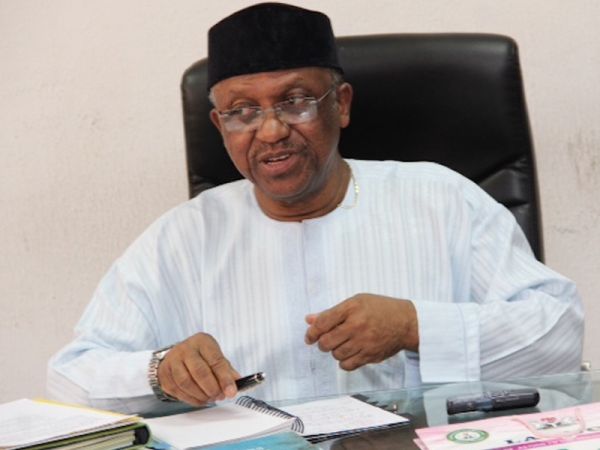Godwin Udoh
Minister of Health, Dr. Osagie Ehanire, has decried the high rate of maternal and child mortality rate in the country.
The minister said this while addressing the 62nd National Council on Health (NCH) Meeting in Asaba, the Delta State capital.
Ehanire said that in spite of global decline in maternal mortality in Millennium Development Goals era, the rate in Nigeria remained among the highest in the world, with over 40,000 deaths yearly.
“The Sustainable Development Goal (SDG) targets for maternal mortality by 2030, is for Nigeria to reduce maternal deaths by over 90 per cent (less than 3000 maternal per year).
READ ALSO: Oyo dep. gov. gets nine aides
“In spite of all efforts, women and babies die needlessly; this concern made Federal Ministry of Health engage other stakeholders to develop a ‘Strategic Roadmap for Action’ to be a springboard to accelerate reduction of maternal and neonatal mortality.”
The NCH is Nigeria’s highest policy-making organ on health matters, and platform for the members and stakeholders to consider and deliberate on health issues of national importance.
Speaking at the meeting, Governor Ifeanyi Okowa of Delta State, said that Nigeria overtook India as the nation with highest maternal and child mortality rate in the world, in 2015, saying, “though our population is less than one fifth of that of India.”
He, therefore, said that a review of the Second National Strategic Development Plan was imperative to enhance practicality of its operationalisation in view of the fiscal constraints the country was currently facing.
“Of utmost priority is the need to develop viable and sustainable frameworks that would address both maternal and child morbidity and mortality”.
The governor said that as a medical doctor and former Commissioner for Health, he had deep yearning and passionate desire for improvements in the regulation and access to affordable and quality healthcare, especially the poor and vulnerable.
“This is necessary, because it is important that interventions are focused on outcomes rather than inputs as these help to ensure that available resources are judiciously utilised”.
He commended President Muhammadu Buhari’s administration for implementing Basic Health Care Fund which was part of the National Health Act he facilitated its passage as a senator.
Okowa disclosed that under his watch as governor, Delta became the first state in the country to establish the Contributory Health Commission to drive its Universal Health Coverage scheme for the rural dwellers.
READ ALSO: Don’t provide legal representation to bandits, Katsina AG tells lawyers
He said that the scheme had between February, 2016 when the Commission was established, and Aug. 31, 2019, enrolled 630,268 persons.
The governor stated that 472,667 persons had enrolled in the Equity Health Plan category of the scheme during the period.
According to him, the enrollees in the category comprise 185,664 pregnant women and 287,003 children under five years, whose premium are paid by the state government.
He added that Formal Health Plan enrollees in the scheme were 149,395, while ‘Informal Health Plan’ had 8,206 enrollees.
The governor further disclosed that 110 primary healthcare facilities, 65 secondary healthcare facilities and 52 private healthcare concerns were providing services under the scheme in the state.
However, due to the low number of the informal sector group members registering for the scheme, we have adopted Community-Based Registration strategy where we have Community-Based Liaison Officers in communities that have functional facilities, officers go from house to house to educate the people on the scheme and its benefits.


